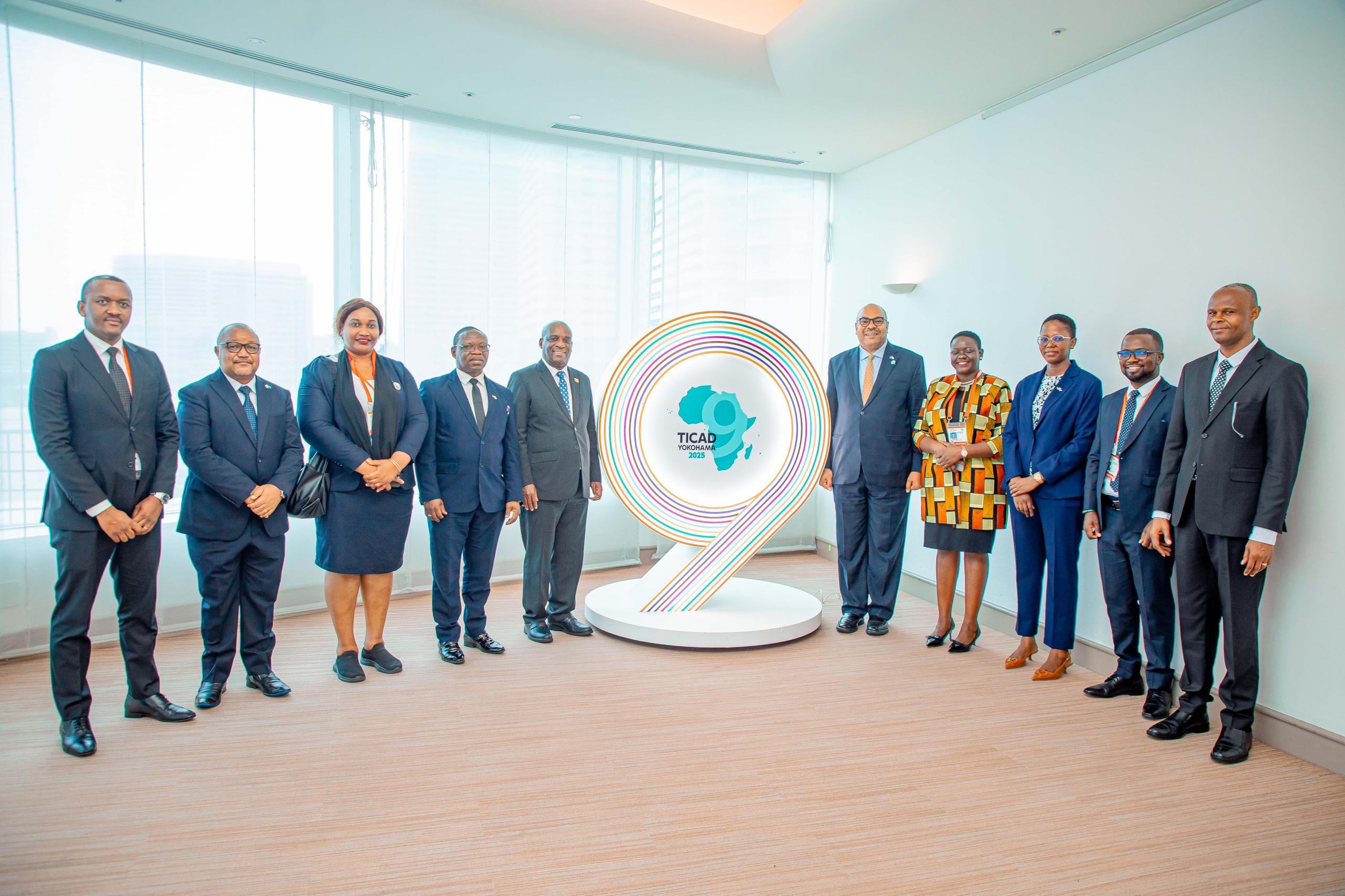
African leaders during the closing of TICAD 9 on 22nd August 2025. Photo/Courtesy
By Daisy Okiring
The ninth Tokyo International Conference on African Development (TICAD9) concluded in Tokyo on Friday with sweeping commitments aimed at reshaping Africa’s economic and social trajectory in line with the African Union’s Agenda 2063.
The high-level gathering brought together African heads of state, Japanese leaders, development partners, and private sector players. Delegates issued a comprehensive declaration that placed economic resilience, digital transformation, peacebuilding, and sustainable development at the heart of Africa–Japan cooperation.
Focus on Economic Resilience
A key outcome was the endorsement of the African Credit Rating Agency (AFCRA), which is set to become operational next month. Leaders stressed that the agency will provide a fairer assessment of African economies, countering the bias of global credit rating systems that often inflate borrowing costs for African states. By reducing unfair premiums, more funds can be directed toward infrastructure, healthcare, and education.
The summit also reaffirmed the African Continental Free Trade Area (AfCFTA) as a foundation for Africa’s industrialisation and integration. Delegates committed to strengthening regional value chains, boosting intra-African trade, and increasing the competitiveness of African goods in global markets, with Japan promising to open more access for African exports.
Japan also pledged to expand investment in African special economic zones, targeting industries such as electronics, automotive, and green technologies.
Digital Transformation and Youth Empowerment
With Africa home to one of the world’s youngest populations, the summit placed strong emphasis on digital transformation. Leaders highlighted collaboration in artificial intelligence, robotics, and smart city infrastructure, noting that Africa’s digital future must be inclusive and ethical.
Japan and African states committed to establishing AI innovation hubs and centres of excellence that will nurture talent and promote human-centred governance of emerging technologies.
Read More: Kiir appoints daughter to key role as Finance minister fired
Read More: Rwanda dismisses claims of supporting M23 rebels accused of DRC killings
Infrastructure and Connectivity
Infrastructure remained a major priority. Delegates pledged joint investments in sustainable transport systems such as railways, ports, aviation, and the Trans-African Highway. These efforts align with the Single African Air Transport Market (SAATM), a flagship AU project designed to improve connectivity and lower the cost of intra-African air travel.
Smart mobility solutions, including digital ticketing and integrated urban transport, were also identified as crucial to managing Africa’s rapid urbanisation.
Food Security and Climate-Smart Agriculture
On food and nutrition, TICAD9 reaffirmed commitments under the Kampala Declaration, which aligns with the Comprehensive Africa Agriculture Development Programme (CAADP). Leaders pledged to scale up climate-smart agriculture, modern irrigation, and agro-industrial value chains. Japan said it would support World Bank–backed food security initiatives, with a focus on empowering women and youth in rural economies.
Read More: Foreigners flying into Tanzania to pay new Ksh11,000 levy
Debt, Finance and Global Governance
Debt distress, which has placed several African economies at risk of default, was another critical theme. Delegates called for reforms to global financial governance and welcomed innovative tools such as the Enhanced Private Sector Assistance (EPSA) facility and the Special Transition Allocation for Africa’s Resilience (STAR). These are designed to mobilise private capital while reducing dependency on external borrowing.
Climate Change and Energy
Climate change was described as an “existential threat” to Africa. Leaders emphasised the urgent need for accessible and affordable climate finance to help vulnerable nations adapt to floods, droughts, and extreme weather.
Japan reaffirmed its backing for renewable energy projects, while both sides stressed that Africa must benefit fully from local processing of its critical minerals within a just energy transition framework.
To expand energy access, delegates endorsed the World Bank–African Development Bank “Mission 300” initiative, which aims to connect 300 million Africans to electricity by 2030. Clean energy technologies, including solar and wind power, will be prioritised.
Shared Vision for Transformation
In their closing remarks, African and Japanese leaders underscored the importance of partnership in addressing Africa’s challenges and unlocking its potential. They reaffirmed their commitment to work within the AU’s Agenda 2063 vision, emphasising that Africa’s transformation requires long-term investment, innovation, and shared responsibility.
The TICAD9 summit ended with optimism that the ambitious pledges will not remain words on paper but translate into measurable progress for Africa’s people in the years ahead.



